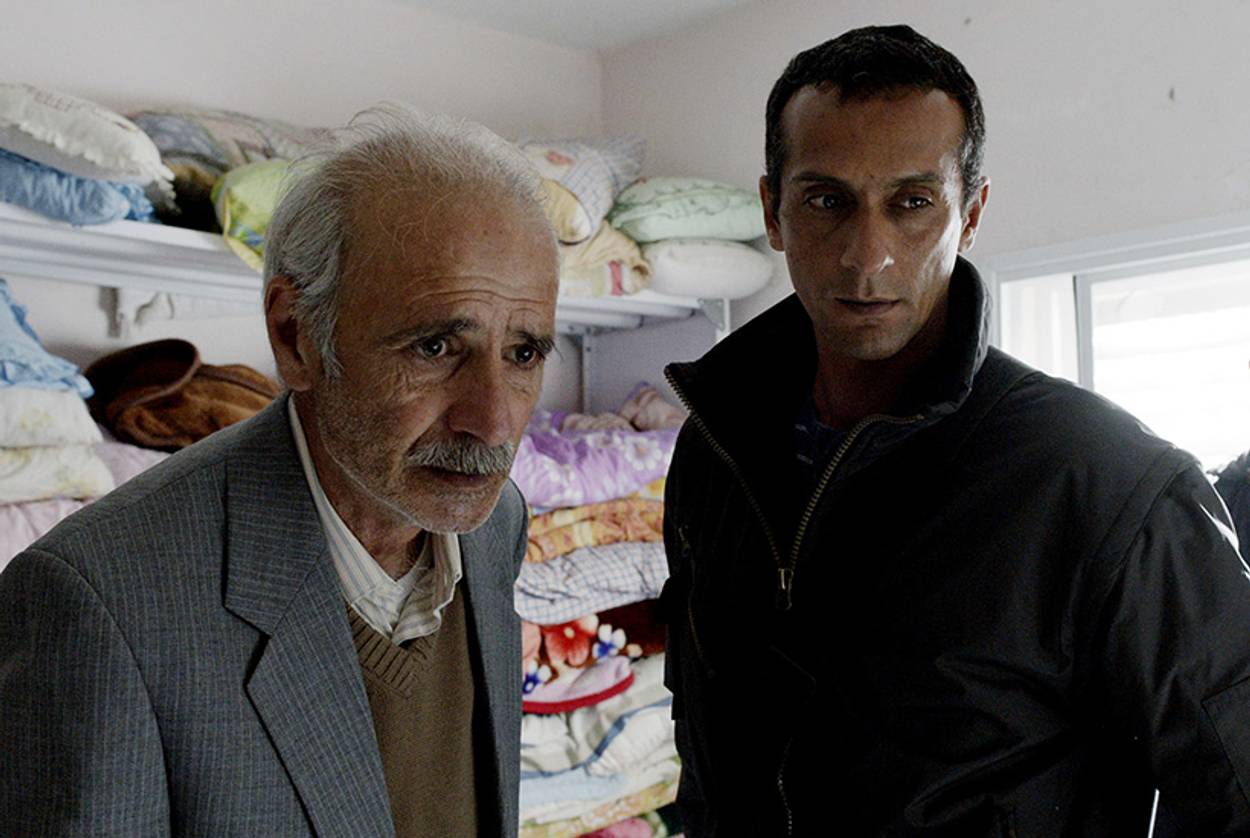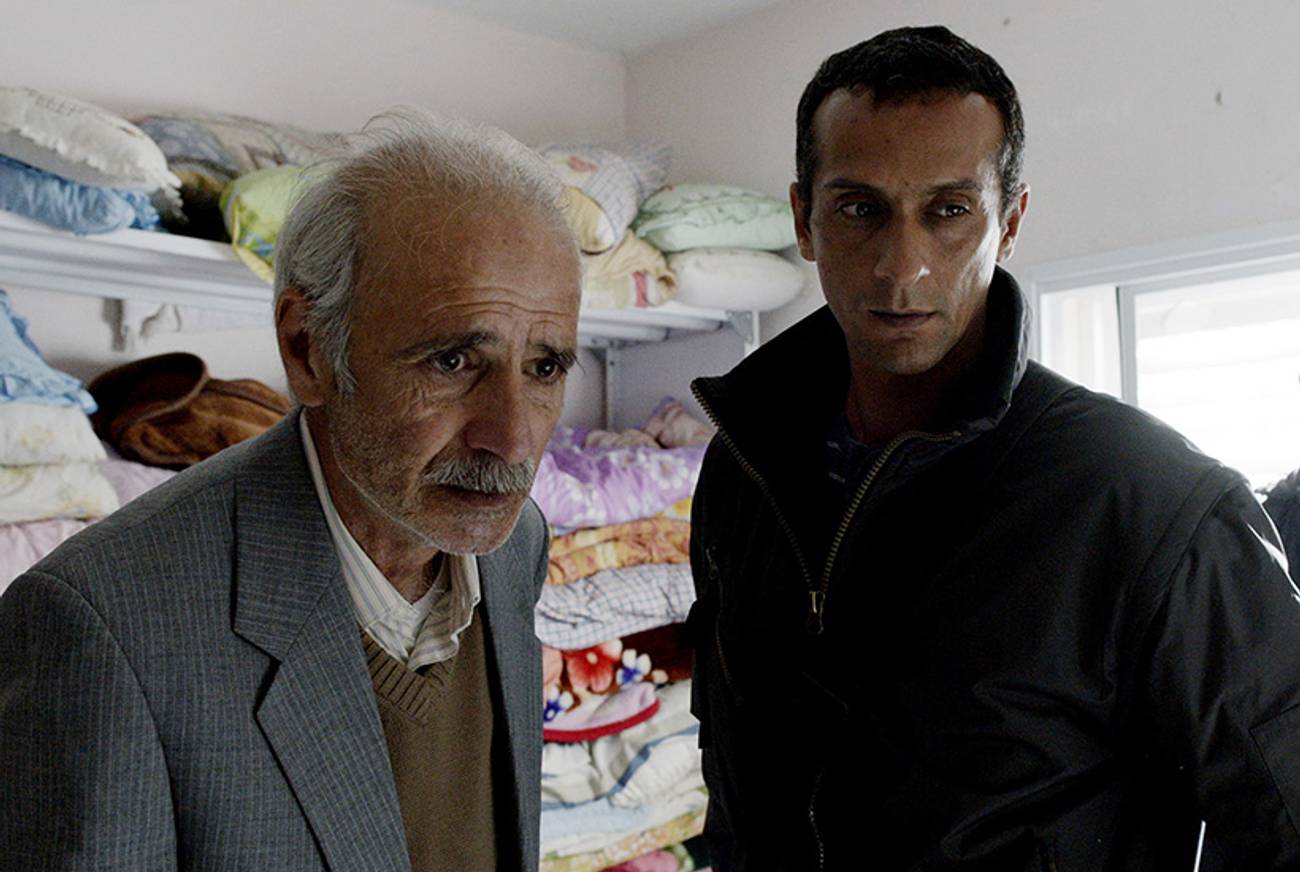‘Omar’ and ‘Bethlehem’ Tell the Same Story—But Only One Was Nominated for an Oscar
The better, more real, and more compelling of the two Israeli-Palestinian intelligence films opens this week in the U.S.




Both the Israeli and Palestinian nominees for best foreign film this year focused on the highly complex relationship between Palestinian informers and their Israeli handlers, agents of Israel’s Shin Bet (its General Security Services). Omar and Bethlehem are both infused with the frustration and pessimism endemic in so much of the Middle East since the Arab Spring’s failure to meet its predominately young advocates’ expectations; both open ominously with the sound of gunfire, and both end badly for their major characters. Both share the same U.S. distributor–Adopt Films, a two-and-a-half-year old, New York-based company that bought the U.S. rights after seeing both films at the Toronto International Film Festival. Filmed a year apart—Bethlehem came first—the films’ directors used some of the same equipment, in short supply in Israel, and even some of the same actors.
There, however, the similarities between the films end. Bethlehem, Israel’s entry in the competition for best foreign film, and Omar, the Palestinian movie that the academy’s foreign film committee chose instead, are very different movies with radically different approaches to their subject and the underlying conflict. Omar is directed by Hany Abu-Assad, an Arab-Israeli who comes from Nazareth and identifies himself as a Palestinian. His much-admired 2005 drama Paradise Now also dealt with the theme of occupation and specifically the motives and actions of Palestinian suicide-bombers. In this latest effort, Abu-Assad’s fifth film, Adam Bakri (who until recently lived in New York) plays Omar, a young Palestinian bread baker in occupied Israel who is in love with Nadia (Leem Lubany), the younger sister of his best friend Tarek (Eyad Hourani).
Shots ring out as Omar scales the wall at the start of the film. The massive gray concrete slabs that separate him physically from Nadia serve throughout the film as a perpetual reminder of occupation and the isolation and dislocation experienced not just by Omar, but by other Palestinians whose villages, towns, and lives have also been disrupted by the proliferation of these giant ugly concrete barriers that have helped keep Israelis safe.
Omar, Tarek, and a third childhood friend, Amjad (Samer Bisharat), spend their spare time at rifle practice preparing to be freedom fighters. After Israeli soldiers humiliate Omar on a road near the wall, he and his two friends ambush and kill another Israeli soldier. Israel’s response is immediate and brutal. Shin Bet agents quickly arrest Omar, throw him in a dank cell, interrogate, torture, and trick him into making a confession that his Israeli handler, Rami (Waleed Zuatir, one of the few professional actors in the cast), uses to force him to turn informant. Rami tells Omar dispassionately that he has no choice but cooperation. The rest of the movie deals with Omar’s futile efforts to prove him wrong and marry the young woman he loves.
Jeff Lipsky, the executive vice president of Adopt, says that Omar is more about failed love than it is about Israeli intelligence or occupation—more of a Shakespearean romance—a Palestinian Romeo and Juliet—than an intelligence thriller like Bethlehem, whose main character’s collaboration with Israel is at the film’s core. Indeed, Omar’s claustrophobic sense of no options and his futile love for Nadia are powerfully conveyed by both actors and director Abu-Assad. But the film’s depiction of Israelis is a caricature—pure Palestinian agit-prop. In fact, there are no real Israeli characters in the film.
Bethlehem, by contrast, which opens in theaters in 12 U.S. cities on March 7, creates sympathetic portraits of both its main Israeli and Palestinian character. Directed by Yuval Adler in his film debut and written with Palestinian journalist Ali Waked, the film focuses on the relationship between Sanfur (Shadi Mar’i), the younger brother of a wanted Palestinian militant, and Razi (Tsahi Halevy), the Israeli agent who is handling him and trying both to protect Sanfur and find his brother before he can carry out a terrorist strike within Israel.
Variety called Bethlehem a “tightly wound clock-ticking thriller,” but the film is far more than that. It is a subtle, painful, unsparing examination of one of the most intimate, emotionally complex of relationships—that between an intelligence handler and his source. “Human intelligence is based on intimacy,” Adler said in a telephone interview last week. “Handlers are shrinks, therapists, and not just soldiers. They identify someone who needs something in a society and hone in on them. They give them something they need. Yet at the same time, they’re exploiting them. It’s what all intelligence services do.”
Such relationships, almost by definition, are unstable—and hence, fraught with peril. Israelis are keenly aware that their exploited sources can turn on their handlers at any moment, without warning. So, on one hand, Razi knows intellectually that his source, young Sanfur, has already betrayed him in a minor way once and is capable of doing so again. On the other hand, he feels a powerful bond with the 15-year-old teenager, a protective, all-too-human instinct that both clouds his judgment and leads him to take potentially fatal risks. “I trust him like my own son,” Razi tells another agent while berating him for interfering with his questioning of Sanfur. To protect his source, Razi is even willing to mislead his fellow Israeli agents.
Adler said that his plot was based on a real story and that he and his screen writer, Ali Waked, conducted extensive research to ensure that the film’s details were right. Israeli critics have praised that aspect of the film. Although many Palestinians have seen Bethlehem, it has not been shown on the West Bank, and Adler doesn’t expect that it will be.
“Omar, by contrast, has been shown on the West Bank,” Abu-Assad said and, not surprisingly, has been warmly received there. Over 80 percent of the film’s roughly $2 million budget was raised from individual Palestinians—another first, he says. Abu-Assad confirmed that he made no effort in his film to tell Israel’s side of the story, or as he told the Associated Press in a recent interview, “I find any kind of balance between the occupied and the occupier a little false.” Any good movie, he said, was usually told “from one point of view.”
Most articles about the two films have focused not on the similarities and differences between them, but on their sponsors. While Israel decided last year to nominate Bethlehem for an Oscar, never before has a film been nominated by what the academy has now called “Palestine.” While Abu Assad’s 2005 film, Paradise Now, was also nominated for an Oscar, the film was identified at the time as having come from the “Palestinian Territories.” Several American Jews have already objected to the new designation. “There is no such country yet as Palestine,” said Rabbi Marvin Hier, the dean and founder of the Simon Wiesenthal Center in Los Angeles, who said that he had not yet seen either film. “To get out in front of the peace talks, whether it’s the academy or anyone else, is a bad idea.”
Adler said he is thrilled with the response to Bethlehem within Israel and hopes that his film will provoke a similar debate about the issues it raises when it opens in American theaters at the end of the week. For a first-time director, just to be nominated by his own country is enormously satisfying, he said.
The academy’s foreign film committee did not respond to repeated requests for comment on why it chose Omar, with its harsh portrait of Israelis over the more nuanced Bethlehem. (On Sunday, Omar lost the award to the Italian film La Grande Bellezza.)
But controversy over the foreign film nominees is nothing new. Almost every year, academy members protest some of the foreign film committee’s perplexing decisions. In addition to its preference for the Palestinian film over Israel’s contender, film buffs were miffed by the committee’s omission from its short list of Wadjda, the first notable film shot entirely inside Saudi Arabia—by Haifaa al-Monsour, a female director, no less. The film about a Saudi girl who challenges the kingdom’s deeply rooted, religious-based repression of women by her determined quest to buy a bicycle had generated enormous “advance buzz,” wrote Nancy Tartaglione, the international editor of Deadline, a popular film site.
Those unhappy with the committee’s snub of Bethlehem noted that while Israeli films have been nominated 10 times—receiving more nominations than any other country—it has never won an award.
***
Like this article? Sign up for our Daily Digest to get Tablet Magazine’s new content in your inbox each morning.
Judith Miller, Tablet Magazine’s theater critic, is the author of the memoir The Story: A Reporter’s Journey.
Judith Miller, Tablet Magazine’s theater critic, is a former New York Times Cairo bureau chief and investigative reporter. She is also the author of the memoir The Story: A Reporter’s Journey.